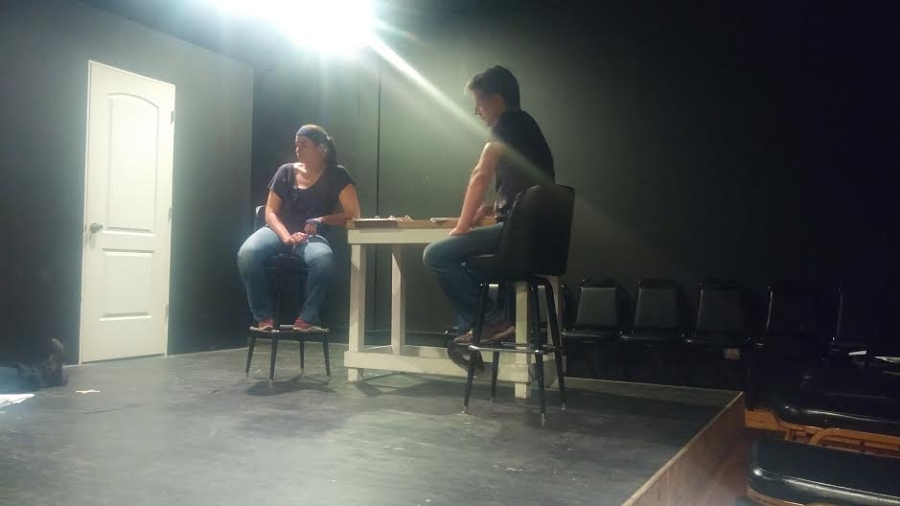CHICAGO: If in wine there is truth, then in mimosas there are plays.
Playwright/performer Erin Lane was getting her MFA from Hollins University while hosting a podcast called Femimosas, “where we drink mimosas and talk about feminism,” she says. One podcast episode kept returning to Lane’s memory—one about sexual violence against women in the military. Meanwhile, writing assignments for a Narrative Theory class at Hollins were piling up.
“I wanted to give those silenced female soldiers a voice,” Lane recalls. The more research she did on the subject of violence toward women in the military—and the military’s lackluster response to it—the more convinced Lane became that she had to write a play about the topic. “Women aren’t really given a megaphone to talk about sexual abuse or harassment and its effect on them in society,” she says. “We’re hushed or ignored, because it’s not an easy thing to listen to.” As Lane’s research deepened, she found herself with not one but three generations of female characters shouting to be heard.
Directed by Cheryl Snodgrass, Hoist, which run Oct. 5–Nov. 7 at the Alley Stage in a coproduction by Foundlings Theatre and Wheelhouse Theatre, where Lane is also executive director, is set in a basement bar and centers around Skylar, an Afghanistan war veteran and bartender who can’t seem to shake her past. When an old flame turns up, things at the bar begin to go south.
“To set the play in a bar was easy for me,” says Lane, who worked the day shift as a barkeep for eight years and got to know her fair share of regulars—“all some of the most hateful people I ever loved,” she says with signature wit.

One might not expect a play about a war vet who has experienced sexual violence to be particularly funny, but Hoist crackles with bleak and biting humor. “There’s no joy without pain,” Lane explains. “I’ve tried to include the tiniest bits of hope throughout a very dark play.”
Hoist has been developed at several conferences, readings, and festivals over the past year (I caught one such iteration at the Great Plains Theatre Conference this past May), and the reactions toward the plays’s story and characters tend to be as varied as people’s feelings about the military. “I honestly don’t think anyone has walked away from Hoist saying ‘meh,’” says Lane, describing the gamut of reactions which run from speechlessness to “I-need-to-talk-about-this-now.”
One hotly debated component of Hoist when it was read at the GPTC was the character of Simon, Skylar’s ex-boyfriend, who happens to be British. “Simon is still British,” says Lane, who chose that nationality because it felt like doing so would underscore Simon’s privilege. “Most Americans think of England as a ‘heightened’ place, someone full of people born to extravagance and wealth. It’s a stereotype, but one that would hit with an American audience.”
Audiences for Hoist will be in an intimate 60-seat alley theatre where the fight choreography is designed to create an intense experience. But Lane, for one, is keen on sparking conversations, not fisticuffs, among audience members. “My job is to create an excitement, a passion and need for a conversation over cocktails after the play is over,” she says. “I want people to need to talk about what they just saw.”
For Lane, Hoist isn’t just for the female veterans who cried out for a voice, but for all mothers and daughters who have experienced some form of sexual torment or abuse. “I want people to see the light at the end of the tunnel…but also I want to them know that it’s okay to live in the dark for a while.”
Cheers to that.


